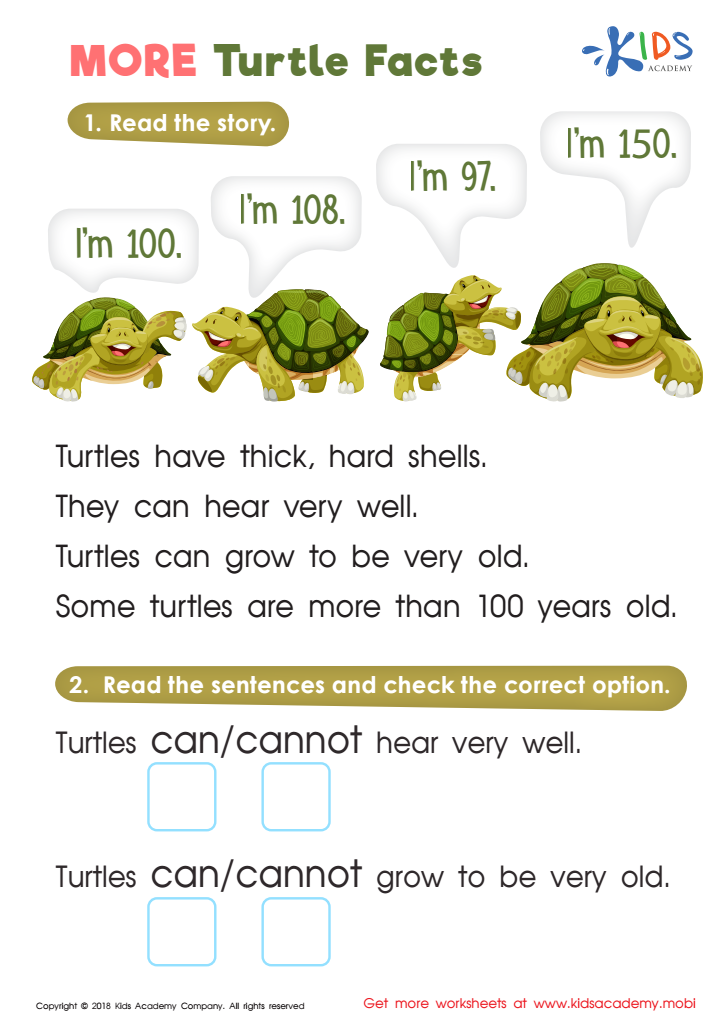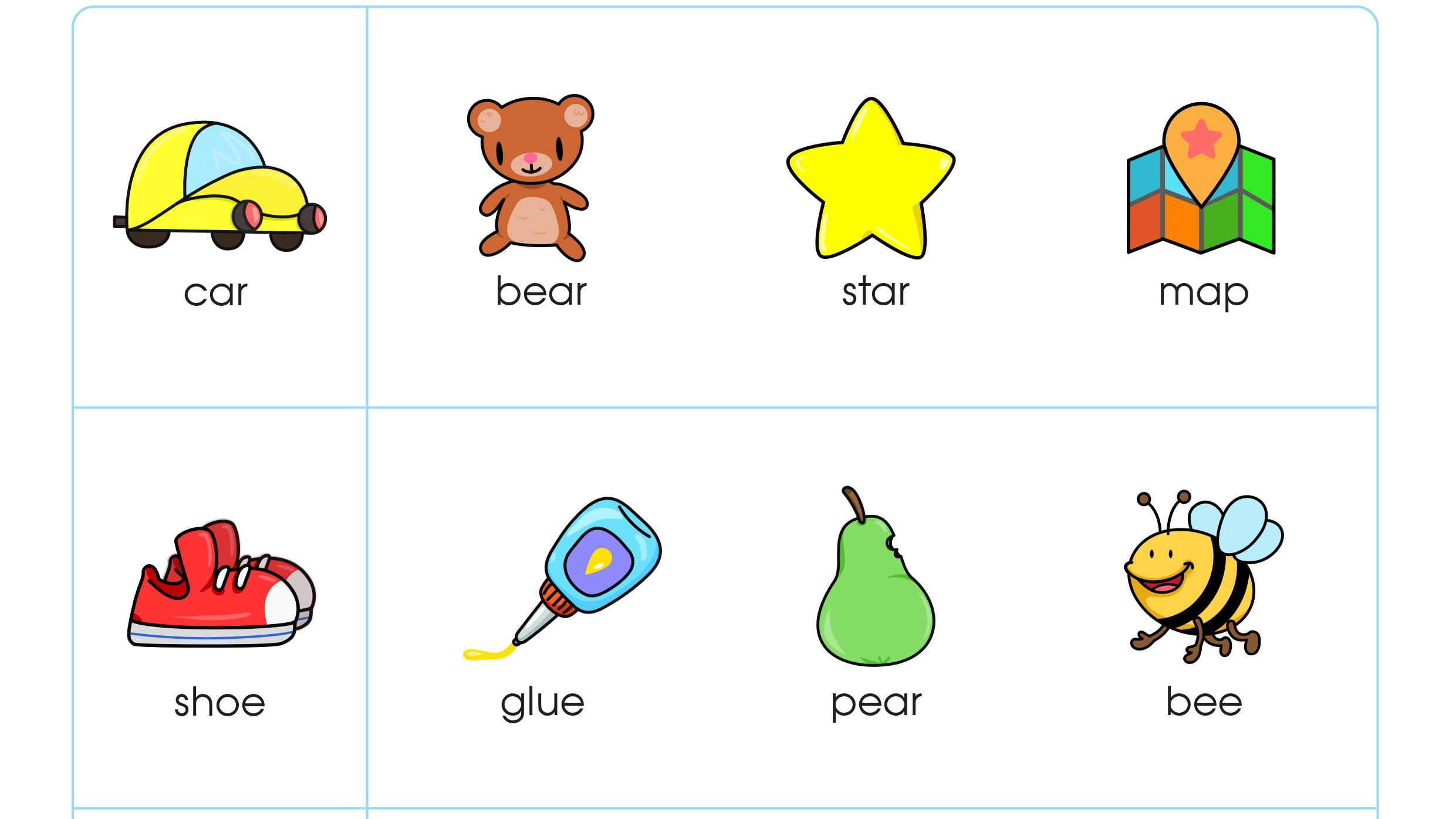Detailed observation Worksheets for Kids
1 filtered results
-
From - To


More Turtle Facts Worksheet
Question/Answer
What are some effective activities to train students’ Detailed observation skill when teaching them about Reading Non-Fiction?
Effective activities to train students in detailed observation skills in non-fiction include annotating texts to highlight key facts and details, creating mind maps to organize and connect information, summarizing paragraphs to capture essential points, comparing and contrasting texts to identify unique features, and conducting scavenger hunts within texts to find specific information or evidence supporting arguments or claims.
Why is the Detailed observation skill important for Grade 1 students?
The detailed observation skill is crucial for Grade 1 students as it lays the foundation for critical thinking, enhances learning and comprehension, and fosters curiosity. By noticing details, students can make connections, improve their problem-solving abilities, and better understand the world around them. This skill also supports the development of scientific inquiry and literacy skills at an early age.
How to test a Grade 1 student’s Detailed observation skills?
To test a Grade 1 student's detailed observation skills, use picture observation activities. Present them with a colorful, detailed image for a short period, then ask them to recall specific details, such as the number of animals, colors of objects, or actions of characters. This method assesses their ability to notice and remember fine details.
 Assign to the classroom
Assign to the classroom











